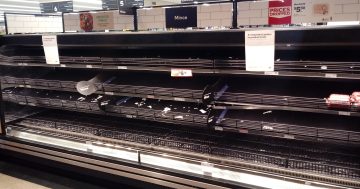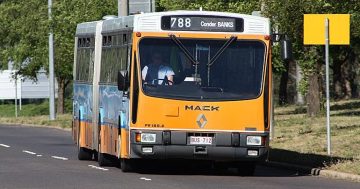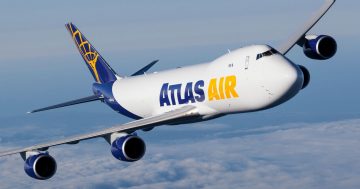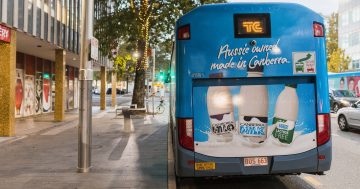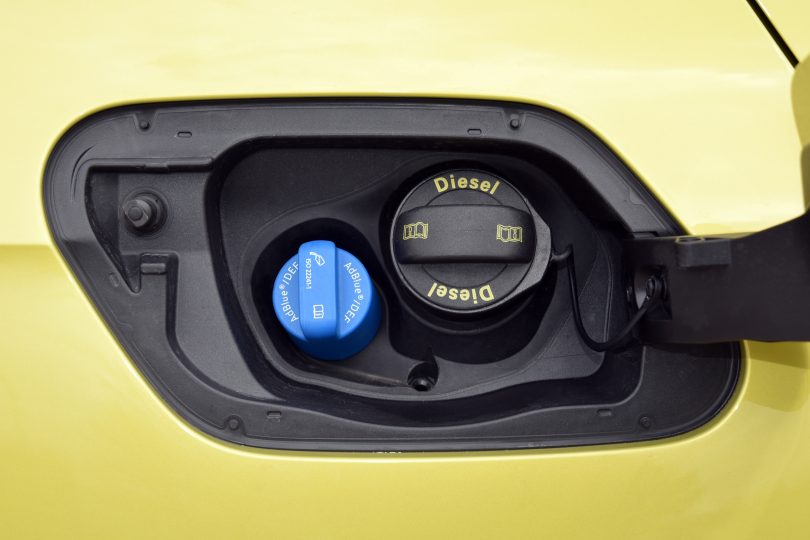
The two separate filler caps for diesel and AdBlue on a passenger car. Photo: File.
Shoppers might be contending with increasingly bare shelves as increasing numbers of workers find themselves in isolation due to COVID-19, but another major shortage has been unfolding since late 2021, with the potential for similar consequences.
Motorists and truckers across Australia, including the ACT, are still finding it hard to locate a crucial additive for their diesel engines. When they do find it, the prices are astronomical.
The bad news is those on the ground say there isn’t really an end in sight.
AdBlue is made from a very precise mixture of 32 per cent urea and 68 per cent demineralised water, and it is used in modern cars, trucks, farm equipment and construction machinery.
The product sits in a vehicle’s separate tank to the diesel tank and is automatically injected into the exhaust system, preventing the major smog pollutant nitric oxide from making it into the atmosphere.
The technology has only been fitted to diesel engines since 2010 so older models can happily run without it. Anything else will grind to a halt.
Modifying the engines as a workaround is possible, but also potentially dangerous and illegal.
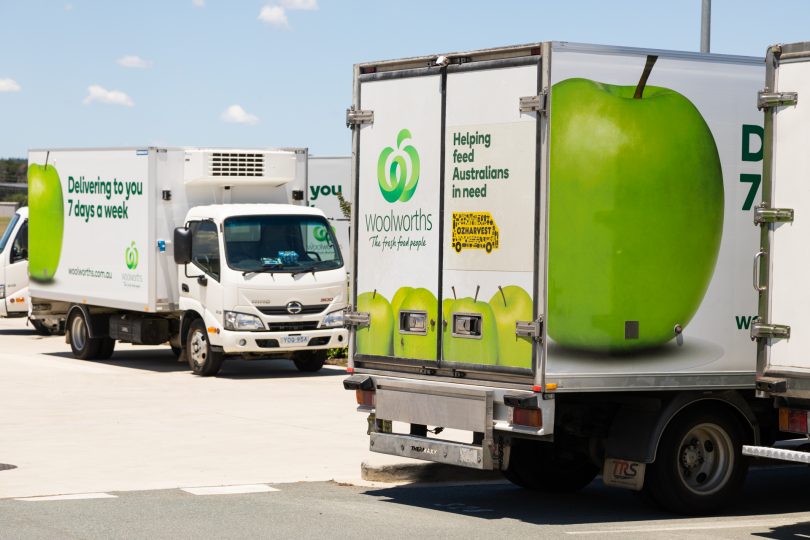
Many modern trucks rely on AdBlue additive. Photo: Michelle Kroll.
Up to 80 per cent of Australia’s supply of urea comes from China. The trouble began in 2021 when China announced it would no longer be exporting the substance, ostensibly to ensure their local farmers had an adequate supply.
This caught Australia off-guard, with fears the nation’s freight lines would collapse.
Australia isn’t alone, either, with AdBlue hard to come by around the world, especially in Europe where diesel accounts for a high proportion of private cars.
Local Canberra transport companies MB Logistics and Canberra Mainfreight Transport say they have remained largely unaffected by the shortage due to prior agreements with AdBlue suppliers and their relatively small fleets. But the same can’t be said for many others.
Abletts Transport is a family-run trucking company with offices in Sydney, Melbourne and Canberra, and a mixed fleet of older and newer vehicles. Spokesperson Lee Abletts described the situation before Christmas last year as “scary”.
“We were looking at no alternative except pulling the truck up,” he said.
“We were lucky we had a good supplier so we didn’t have to pay the obscene prices that AdBlue was going for elsewhere.”
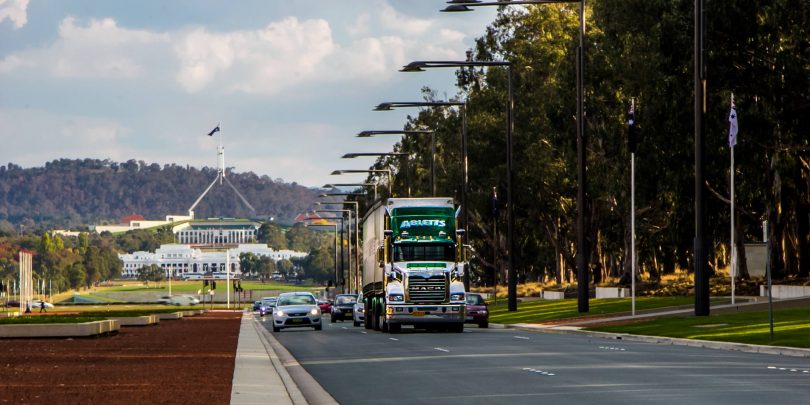
Canberra trucking companies haven’t been exempt from AdBlue shortages. Photo: Abletts Transport.
Abletts Transport kept a bulk supply in their yard, but even this dried up in the lead up to Christmas.
Certain vehicles can go for as long as week without AdBlue due to the size of the tank, but others require a top-up nearly every trip.
“Some of the bigger trucks require 200 litres of the stuff,” said Mr Abletts.
Prior to the shortage, he said the company was paying 39 cents a litre for their bulk supply from Sydney. It’s now $1.89 a litre, with prices elsewhere as high as between $5 and $10 a litre.
The average Canberra punter, with no access to bulk suppliers, is bearing the brunt of this. Many people are taking to local Facebook groups to ask about where others have found the elusive additive, as hit-but-largely-miss supplies continue to plague service stations and automotive stores.
Mr Abletts said says the issue has improved, but is far from resolved, and he expects it to continue causing headaches during the course of 2022.
AUSBlue, Australia’s largest mixer of AdBlue, denies accusations that price gouging is occurring, instead saying the massive increase in cost is attributable to the natural actions of the supply and demand seesaw.
Queensland-based company Incitec Pivot is the largest producer of urea in Australia, supplying around 10 per cent of the national market. They are currently overhauling their equipment in Brisbane so they can make more of the higher-grade solution used in diesel engines.
However, their plant is scheduled to close in December 2022 due to a gas supply dispute, begging questions as to who will pick up the slack come 2023.












